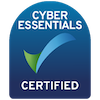Level 2 Certificate in Understanding Environmental Sustainability
Course Overview
Since 1990, the world has lost 178 million hectares of forest. As an estimated 45% of carbon on land is stored in trees and soil, this loss has a serious effect on the Earth’s atmosphere. It is more important than ever that everyone has a greater understanding of how they can take sustainable steps to protect the planet.
This course will provide an overview of the principles of sustainable development, communities and energy management, and the social responsibility of businesses in relation to sustainability. Learners will also look at the principles of waste management and sustainable transport and applying sustainability in their own setting through zero waste.
In England, you will gain an accredited Level 2 qualification.
In Scotland, this course is comparable to a Level 5 based on the Scottish Credit and Qualification Framework. Upon completion of the course, learners in Scotland will receive a digital e-certificate issued by your college.
Key Information
Course Length
8 to 12 weeks
Course Level
Level 2
Awarding Body
TQUK
(E-certificates upon achievement)
Learning Method(s)
Online materials
Online assessment
For Individuals
Benefits
- Study from anywhere, at any time
- Nationally recognised
- Access to an award-winning e-learning platform
- Perfect for beginners
- Support from expert Tutors
- Receive a digital e-certificate upon completion
- No hidden costs
Cost and Funding Information
Course Price
£299.00
Direct Debit
Yes
Funded Course
England and Scotland Only
Study this course
Apply today and begin your journey to qualification
Apply nowBuy the course today and begin your journey to qualification
This course is split into six manageable units, with a seventh optional unit available:
Unit 1: Principles of sustainable development
In this unit learners will cover:
- The definition of sustainable development
- Human and global issues that impact sustainability
- Common objections to sustainable development
- Benefits of sustainable development and environmental management systems
- The impact that organisations and the environment can have on each other
- How a carbon footprint is calculated
- How to manage carbon footprint in an organisation
- How to reduce carbon footprint in an organisation and at home
- What ‘resource efficiency’ means
- Benefits of using resources efficiently
- Circular sustainability
- Consequences of organisations polluting the environment
- How organisations help prevent pollution
- How management structure can support environmental sustainability
- How employees can help support environmental sustainability
Unit 2: Principles of sustainable communities
In this unit learners will cover:
- The definition of ‘sustainable community’
- What is required for a community to be sustainable
- The local and global benefits of a sustainable community
- Resources that can be used to support community development proposals
- Sources of support for implementing sustainable development in a community
- Engaging with sources of support for development proposals
Unit 3: Principles of sustainable energy management
In this unit learners will cover:
- The definition of sustainable energy management
- Legislation and international agreements relating to sustainable energy management
- Energy conservation techniques
- The contribution of renewable energy sources to sustainable energy management
- How energy saving can be monitored
- How to manage energy usage
- How to set targets for energy saving
Unit 4: Social responsibility of businesses in relation to sustainability
In this unit learners will cover:
- What is meant by Corporate Social Responsibility (CSR)
- The importance of social responsibility in businesses for sustainability
- Why businesses might take action to improve social responsibility
- The Triple Bottom Line (TBL)
- How the TBL can impact sustainability
- Greenwashing
- The impacts of greenwashing on society
- The implications of greenwashing on organisations
Unit 5: Principles of waste management
In this unit learners will cover:
- Types of waste
- Characteristics of different types of waste
- Factors which influence the quantity of waste produced by an organisation
- Legislation relevant to waste management
- Public and private sector organisations that have a role in waste management
- The need to manage and minimise waste
- How waste can be used
- How waste management can be promoted
- Methods for disposal of reusable or recyclable waste
- Methods for disposal of waste that is not reusable or recyclable
- How to dispose of waste safely
Unit 6: Principles of sustainable transport
In this unit learners will cover:
- What sustainable transport means
- Sustainable transport methods
- The importance of reducing transport vehicles
- Vehicle fuels not derived from petroleum
- Factors to consider when assessing alternative fuels as sustainable options
- Economic, environmental and social aspects of sustainable fuels
- Economic, environmental and social benefits of reducing the use of vehicles
- Ways organisations use and interact with transport systems
- Impact of transport on the environment
- How organisations can incentivise staff to reduce transport use
- Incentives that can be offered to the public and transport providers to reduce vehicle use
- Schemes to penalise vehicle use
- Barriers that may inhibit the public from reducing vehicle use
- Types of leisure travel
- Sustainable options for leisure travel
- Carbon dioxide emissions of different transport types
- The impact of carbon dioxide emissions of different transport types
- Methods to promote more sustainable transport.
Unit 7: Sustainability applied in own setting (optional)
In this unit learners will cover:
- The purpose of carbon audits
- Carrying out a carbon audit in own setting
- Planning sustainability improvements based on the carbon audit
- What is meant by ‘zero waste’
- Evaluating a zero waste approach in own setting and creating an action plan
- How to address sustainability issues in own setting
- Sources of support when addressing sustainability issues
- Impacts on sustainability when working from home compared to working in a workplace
- Energy efficiency and transportation audit
- Challenges that may be faced when addressing sustainability issues in own setting
 For Businesses
For Businesses
With our combination of market-leading learning resources, exceptional customer service and award-winning LMS solutions, we are confident we can assist with your education and training delivery needs.
Enquire nowNeed some more information?
Check out our Frequently asked question via the link below
















